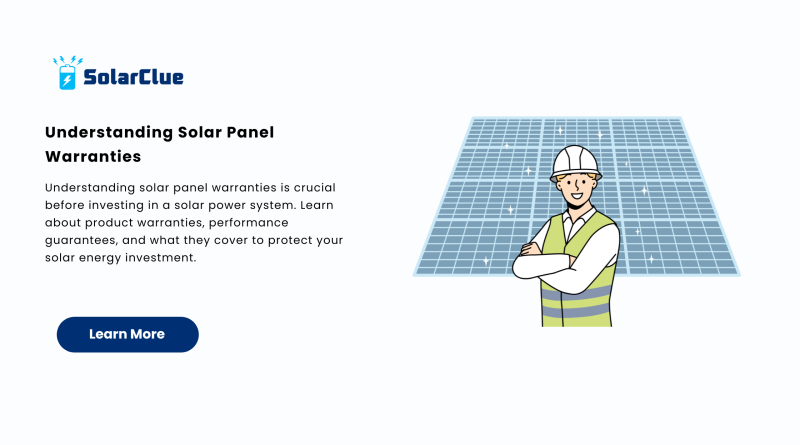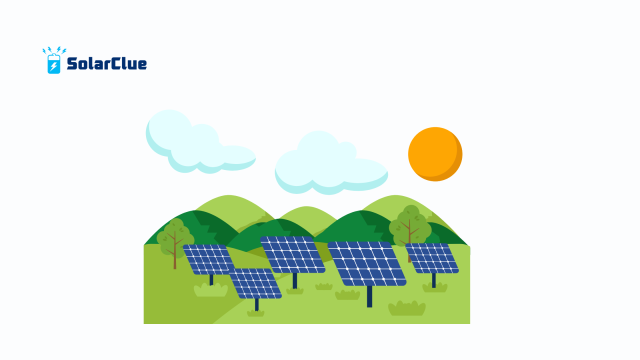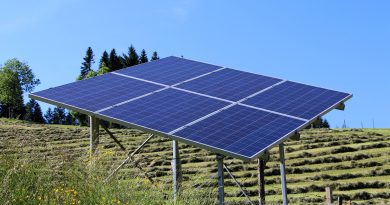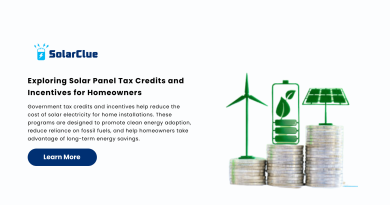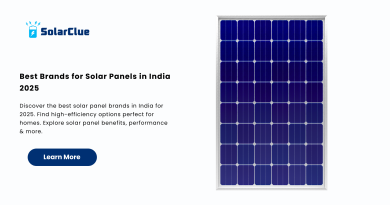Understanding Solar Panel Warranties
Investing in a solar power system is one of the smartest decisions for homeowners and businesses looking to reduce electricity costs and embrace clean solar energy. However, while most people focus on panel efficiency, cost, or installation, they often overlook one critical aspect—solar panel warranties. These warranties protect your investment and ensure long-term performance, but understanding them can be tricky if you’re new to the solar industry. This blog will walk you through everything you need to know about solar panel warranties, their types, coverage, and what you should look for before making a purchase.
Table of Contents
- 1 What is a Solar Panel Warranty?
- 2 Types of Solar Panel Warranties
- 3 Why Warranties Matter in Solar Energy Investments
- 4 Typical Coverage in Solar Panel Warranties
- 5 What’s Not Covered?
- 6 Factors That Influence Warranty Duration
- 7 How to Compare Solar Panel Warranties
- 8
- 9 Real-World Example
- 10 The Role of Installers in Solar Panel Warranties
- 11 Common Misconceptions About Solar Panel Warranties
- 12 How Warranties Affect the Value of Your Solar Power System
- 13 FAQs on Solar Panel Warranties
- 14 Conclusion
What is a Solar Panel Warranty?
A solar panel warranty is a manufacturer’s or installer’s promise to repair, replace, or refund panels that fail to perform as expected. Since solar panels are long-term investments, warranties act as insurance to give you peace of mind about durability and efficiency. They ensure that your solar power system keeps generating electricity for decades.
Types of Solar Panel Warranties
There are generally two types of warranties offered by manufacturers:
1. Product Warranty
A product warranty guarantees that the solar panel is free from defects in materials or workmanship. This typically lasts between 10 to 25 years, depending on the manufacturer. If the panel breaks down due to poor manufacturing, you are eligible for a replacement or repair.
2. Performance Warranty
A performance warranty guarantees that your solar panel will continue to produce a certain percentage of its rated power output over time. For example, most warranties promise that panels will produce at least 80–90% of their original output after 25 years. This ensures that your solar energy system keeps delivering results even decades after installation.
Why Warranties Matter in Solar Energy Investments
When investing in solar power, you’re looking at savings that accumulate over decades. Without warranties, you risk losing money if the solar panels fail prematurely. Here’s why warranties are important:
-
Financial Protection: Repairs or replacements can be expensive without a warranty.
-
Reliability: Long warranties show that the manufacturer trusts its product quality.
-
Peace of Mind: You don’t have to worry about unexpected performance drops.
-
Higher ROI: A secure warranty ensures your solar power system pays for itself over time.
Typical Coverage in Solar Panel Warranties
Most warranties cover the following:
-
Defects in Materials or Workmanship: Protection against faulty manufacturing.
-
Power Output Guarantee: Ensures your panel doesn’t lose more than 0.5–0.7% efficiency per year.
-
Replacement Panels: Free replacement or discounted new panels if issues arise.
-
Service Costs: Some warranties cover labor and shipping, while others don’t.
What’s Not Covered?
It’s equally important to understand what’s not covered in most warranties:
-
Damage due to natural disasters (storms, floods, earthquakes).
-
Improper installation by unqualified technicians.
-
Poor maintenance or neglect.
-
Unauthorized repairs or modifications.
-
Physical damage caused by accidents.
Factors That Influence Warranty Duration
Not all warranties are equal. The length and quality of a warranty often depend on:
-
Manufacturer Reputation: Established brands usually provide longer warranties.
-
Panel Quality: High-efficiency panels often come with 25-year coverage.
-
Technology Used: Monocrystalline panels often have better warranties than polycrystalline ones.
-
Installation Company: Some installers offer additional service warranties beyond manufacturer coverage.
How to Compare Solar Panel Warranties
When evaluating warranties for your solar power system, keep these tips in mind:
-
Check both product and performance warranties—longer is better.
-
See if labor, transport, and replacement costs are included.
-
Verify if warranty transfer is possible when selling your home.
-
Look for brands with proven reliability and strong after-sales support.
Real-World Example
Imagine you install a 5kW solar power system at home. After 10 years, you notice your solar panels producing less energy than expected. If your warranty covers at least 85% output at year 10, the manufacturer must either repair or replace the panels. Without such a warranty, you would bear the entire cost, which could reduce your return on investment.
The Role of Installers in Solar Panel Warranties
Apart from manufacturer warranties, many installers provide their own workmanship warranties. These typically cover:
-
Installation errors.
-
Wiring issues.
-
Roof damage caused during installation.
Choosing an experienced installer ensures your warranty remains valid and protects your entire solar energy system.
Common Misconceptions About Solar Panel Warranties
-
“All warranties are the same.” – Not true. Coverage varies widely by brand and installer.
-
“Warranties cover everything.” – No, many exclusions apply.
-
“Shorter warranties mean bad quality.” – Sometimes smaller companies offer shorter terms, but the panel may still be reliable.
-
“You don’t need to register your warranty.” – In many cases, you must register your warranty within a certain timeframe.
How Warranties Affect the Value of Your Solar Power System
A strong warranty not only protects your investment but also boosts property value. Buyers are more likely to pay extra for a house with a solar panel system backed by long-term guarantees. This makes warranties a hidden but powerful factor in the resale market.
FAQs on Solar Panel Warranties
Q1: How long do most solar panel warranties last?
Most solar panels come with a 10–25 year product warranty and a 25-year performance warranty.
Q2: Are solar panel warranties transferable?
Yes, many warranties can be transferred to new homeowners, adding resale value to your property.
Q3: Do warranties cover labor costs?
Some warranties include labor and shipping, while others only cover the panel itself. Always read the fine print.
Q4: What happens if my solar panel fails after the warranty period?
You’ll have to cover the replacement or repair costs yourself, which is why longer warranties are more valuable.
Q5: Can poor maintenance void my warranty?
Yes. Regular cleaning and proper care are essential to keep your warranty valid.
Conclusion
Understanding solar panel warranties is just as important as choosing the right panels. They safeguard your investment, ensure steady power output, and provide peace of mind for decades. Always check both product and performance warranties, compare coverage between brands, and work with trusted installers to protect your solar power system. When planned wisely, warranties can significantly boost your return on investment in solar energy.
Ready to explore the best solar solutions with trusted warranties? Visit solarclue.com or blog.solarclue.com today and make your solar journey smarter and more secure.

